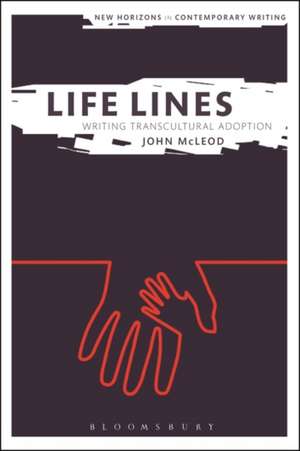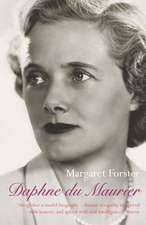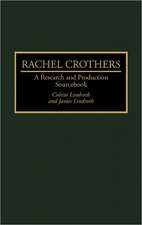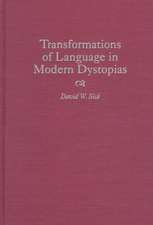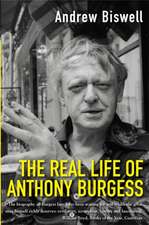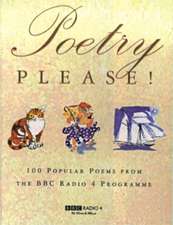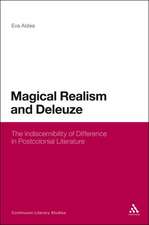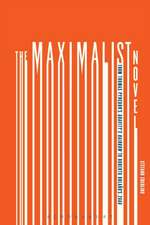Life Lines: Writing Transcultural Adoption: New Horizons in Contemporary Writing
Autor John McLeoden Limba Engleză Paperback – 19 apr 2017
| Toate formatele și edițiile | Preț | Express |
|---|---|---|
| Paperback (1) | 257.59 lei 6-8 săpt. | |
| Bloomsbury Publishing – 19 apr 2017 | 257.59 lei 6-8 săpt. | |
| Hardback (1) | 715.66 lei 6-8 săpt. | |
| Bloomsbury Publishing – 21 oct 2015 | 715.66 lei 6-8 săpt. |
Din seria New Horizons in Contemporary Writing
- 23%
 Preț: 190.41 lei
Preț: 190.41 lei - 30%
 Preț: 510.60 lei
Preț: 510.60 lei - 22%
 Preț: 256.77 lei
Preț: 256.77 lei - 22%
 Preț: 257.21 lei
Preț: 257.21 lei - 12%
 Preț: 259.90 lei
Preț: 259.90 lei - 22%
 Preț: 257.03 lei
Preț: 257.03 lei - 22%
 Preț: 232.34 lei
Preț: 232.34 lei -
 Preț: 223.58 lei
Preț: 223.58 lei - 22%
 Preț: 224.58 lei
Preț: 224.58 lei - 22%
 Preț: 224.76 lei
Preț: 224.76 lei - 21%
 Preț: 217.17 lei
Preț: 217.17 lei - 21%
 Preț: 216.62 lei
Preț: 216.62 lei - 23%
 Preț: 197.52 lei
Preț: 197.52 lei - 23%
 Preț: 190.96 lei
Preț: 190.96 lei - 23%
 Preț: 192.64 lei
Preț: 192.64 lei - 23%
 Preț: 191.56 lei
Preț: 191.56 lei - 23%
 Preț: 191.67 lei
Preț: 191.67 lei -
 Preț: 190.68 lei
Preț: 190.68 lei - 30%
 Preț: 509.69 lei
Preț: 509.69 lei - 30%
 Preț: 541.71 lei
Preț: 541.71 lei
Preț: 257.59 lei
Preț vechi: 295.43 lei
-13% Nou
Puncte Express: 386
Preț estimativ în valută:
49.30€ • 51.28$ • 41.32£
49.30€ • 51.28$ • 41.32£
Carte tipărită la comandă
Livrare economică 13-27 martie
Preluare comenzi: 021 569.72.76
Specificații
ISBN-13: 9781350030350
ISBN-10: 135003035X
Pagini: 256
Dimensiuni: 156 x 234 x 19 mm
Greutate: 0.37 kg
Ediția:NIPPOD
Editura: Bloomsbury Publishing
Colecția Bloomsbury Academic
Seria New Horizons in Contemporary Writing
Locul publicării:London, United Kingdom
ISBN-10: 135003035X
Pagini: 256
Dimensiuni: 156 x 234 x 19 mm
Greutate: 0.37 kg
Ediția:NIPPOD
Editura: Bloomsbury Publishing
Colecția Bloomsbury Academic
Seria New Horizons in Contemporary Writing
Locul publicării:London, United Kingdom
Caracteristici
Texts covered include Mike Leigh's Secrets and Lies and works by Andrea Levy, Barbara Kingsolver, Anne Tyler and Caryl Phillips
Notă biografică
John McLeod is Professor of Postcolonial and Diaspora Literatures at the School of English, University of Leeds, UK. His previous books include Beginning Postcolonialism (2nd edition, 2010) and Postcolonial London: Rewriting the Metropolis (2004).
Cuprins
Introduction: Transcultural Adoption and Adoptive Being 1. Secrets: Mike Leigh, Andrea Levy, Mei-Ling Hopgood 2. Histories: E. R. Braithwaite, Toni Morrison, Sebastian Barry 3. Traces: Hannah Pool, Buchi Emecheta, Catherine McKinley 4. Bearings: Barbara Kingsolver, Caryl Phillips, Jackie Kay Coda: Victoria Station, 1969/2015 Works Cited Index
Recenzii
Life Lines makes a bold and welcome contribution to the scholarly conversations concerning transnational/transracial adoption that have already proven so vital to rethinking its myriad harms and protean possibilities.
[McLeod] explores transcultural adoption in an ambitious work that pulls a wide range of literature together ... This is a book for anyone interested in transracial/transcultural adoption, which includes long term transracial fostering, which seems to be overlooked. For this reason, Life Lines is sure to enhance the knowledge of social workers and health care professionals.
Life Lines is a compelling and scholarly analysis of the literature of adoption, which also takes us on an evocative, and ultimately moving, journey of personal discovery. It is an important book that engages both the head and the heart and deserves the widest possible readership.
This big-hearted book confronts with great honesty the painful material histories that can render human beings adoptable, even as it moves optimistically to embrace the "transfigurative agency promised by adoptive being." "Life lines" are the "multidirectional lines of attachment" by means of which members of the adoption triad may forge a self in vital connection to both biogenetic and adoptive kin. In a series of dazzling readings of recent novels and memoirs about transcultural adoption, Life Lines displays the creativity that adoption both demands and inspires. Ultimately, we could all do well to accept "adoptive being" as the condition of human life itself: a way of being in the world that is never simply singular, that is enmeshed in multiple "life lines," and that opens onto "unguessed futures."
As adoption becomes more visible and often more controversial, literature's varying representation of adoption has emerged as a subject for study. Most of this work has focused on American novels and memoirs. In Life Lines, John McLeod contributes new perspectives to this exploration with his knowledge of British and Irish writing, postcolonial theory, and cultural studies. McLeod develops the concept of transcultural adoption, including adoptions that cross nation, race, ethnicity, and/or religion, and is especially interested in the degree to which texts show adoptees creatively negotiating both blood and adoptive connections. His chapters focus on literary treatments of adoption secrecy and searches for birth parents, connections to adoption of larger histories of race, colonialism, and misogyny (he is very aware of how the latter affects the treatment of birthmothers), and new models of kinship. Readers from both sides of the Atlantic will find fresh insights in his informed, sophisticated and subtly personal discussions of film (Secrets and Lies), novels by Andrea Levy, Toni Morrison, Sebastian Barry, Barbara Kingsolver, Buchi Emecheta, and Caryl Phillips, and memoirs by Mei-Ling Hopgood, E.R. Braithwaite, Hannah Pool, Catherine McKinley, and Jackie Kay.
[McLeod] explores transcultural adoption in an ambitious work that pulls a wide range of literature together ... This is a book for anyone interested in transracial/transcultural adoption, which includes long term transracial fostering, which seems to be overlooked. For this reason, Life Lines is sure to enhance the knowledge of social workers and health care professionals.
Life Lines is a compelling and scholarly analysis of the literature of adoption, which also takes us on an evocative, and ultimately moving, journey of personal discovery. It is an important book that engages both the head and the heart and deserves the widest possible readership.
This big-hearted book confronts with great honesty the painful material histories that can render human beings adoptable, even as it moves optimistically to embrace the "transfigurative agency promised by adoptive being." "Life lines" are the "multidirectional lines of attachment" by means of which members of the adoption triad may forge a self in vital connection to both biogenetic and adoptive kin. In a series of dazzling readings of recent novels and memoirs about transcultural adoption, Life Lines displays the creativity that adoption both demands and inspires. Ultimately, we could all do well to accept "adoptive being" as the condition of human life itself: a way of being in the world that is never simply singular, that is enmeshed in multiple "life lines," and that opens onto "unguessed futures."
As adoption becomes more visible and often more controversial, literature's varying representation of adoption has emerged as a subject for study. Most of this work has focused on American novels and memoirs. In Life Lines, John McLeod contributes new perspectives to this exploration with his knowledge of British and Irish writing, postcolonial theory, and cultural studies. McLeod develops the concept of transcultural adoption, including adoptions that cross nation, race, ethnicity, and/or religion, and is especially interested in the degree to which texts show adoptees creatively negotiating both blood and adoptive connections. His chapters focus on literary treatments of adoption secrecy and searches for birth parents, connections to adoption of larger histories of race, colonialism, and misogyny (he is very aware of how the latter affects the treatment of birthmothers), and new models of kinship. Readers from both sides of the Atlantic will find fresh insights in his informed, sophisticated and subtly personal discussions of film (Secrets and Lies), novels by Andrea Levy, Toni Morrison, Sebastian Barry, Barbara Kingsolver, Buchi Emecheta, and Caryl Phillips, and memoirs by Mei-Ling Hopgood, E.R. Braithwaite, Hannah Pool, Catherine McKinley, and Jackie Kay.
